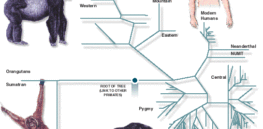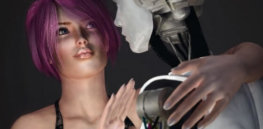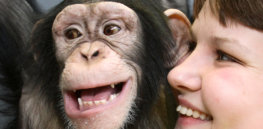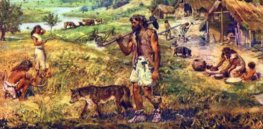Daily Human Digest
New Alzheimer’s research illuminates origins of disease
The hope that Alzheimer’s will one day be curable has in recent years faded to a flicker as successive clinical ...
How ancient mammal spurred war between paleontologists
I’m not sure why I’m so taken with Uintatherium and its relatives. Maybe it’s because poorly-made models of the beast ...
Genetic changes in father’s sperm might explain autism risk
"DNA changes could explain why autism runs in families, according to study," The Independent reports. Research suggests a set of changes ...
Can a placebo pill actually serve as drug therapy?
Placebos have helped to ease symptoms of illness for centuries and have been a fundamental component of clinical research to ...
Six decades ago, US celebrated first successful polio vaccine
Sixty years ago, at about the time you’re reading this, church bells began to ring across the United States. Cars honked ...
Computer scientists compute missing parts of epigenetics map
A pair of computational biologists from UCLA and MIT developed a method that can fill in major gaps in large-scale ...
Were women the masterminds behind hunting with weapons?
Women could have been the first humans to use weapons to hunt. An analysis of spear-wielding chimps, most of which ...
China institutes strict measures against surrogate births
The central government has said it will take a tougher stance on surrogacy, a practice that has grown underground in ...

Game of Life and Death: Can you dare the odds and make it past 100?
Washington Post releases a new interactive feature online that delves into 7 ways medical technology has evolved over the past ...
Texas boy discovers dinosaur fossil near shopping mall
Sometimes, big discoveries are made in the most unlikely circumstances. A 5-year-old boy in Mansfield, Texas has now become a ...

Are humans genetically unique?
A new paper in Science reports high (20-40 percent) derived frequencies for an allele which seems correlated with higher rates of ...
Challenging Darwin as the patron saint of science and secularism
It has become a press custom to ask Republican presidential hopefuls, such as Wisconsin governor Scott Walker, whether they believe in ...
For modern parents, how to weigh pros and cons of sequencing baby’s genome
At 31 years old, not a day goes by without overhearing one of my friends discuss the pros and cons ...
No, a single hormone cannot turn mice gay
In 2011, a group of scientists “turned mice gay.” The only issue is, of course, they didn’t. Rather, Yi Rao ...
How can we best consider the consequences of altering a human genome?
The advent of CRISPR/Cas9 again sees a biomedical technology challenging norms and raising concerns. CRISPR/Cas9 makes it comparatively easy to ...
Human germline modification sorely in need of ethical discourse
An Institute of Medicine committee is in the midst of a 19-month study, undertaken at the FDA’s request, of the ...
Health, ethics, or money: What’s really driving CRISPR debate?
A momentous technological revolution is unfolding in our very real, no longer fictive ability to easily and cheaply alter the ...

What rocks women? Evolution suggests tall guys with hot cars
In prehistoric times, the more dominant male was the more successful hunter, and he was physically stronger than most other ...
Mountain gorillas’ genome sequenced in hope of saving declining species from extinction
Mountain gorillas (Gorilla beringei beringei) are among the most iconic endangered species in the world and, as such, have become ...
Doctor wants to remove head from human body, put it on another
It sounds like the plot for a science fiction movie. Someone has a horrific accident and winds up in the ...
One decade old, Genographic Project’s probe into human history boasts numerous successes
Ten years ago, a group of international scientists and indigenous community members gathered at National Geographic Society’s headquarters in Washington, D.C ...

Sex with robots? Androids are coming to our bedrooms and boardrooms
In the near future, people will interact with androids, converse with them, even have sex with them and artificial intelligence ...

Humans and chimps seen as not as similar as once thought
When geneticist Mary Claire King became the first scientist to compare the genes of chimps and humans in 1975, she was in ...

Northern European hunter-gatherers resisted agricultural revolution
Crops and livestock have been a part of the human experience for thousands of years. But, for some of our ...
Human germline editing debate needs public discourse more than moratorium
Three high-profile scientific statements published in quick succession called for various kinds of moratoria on research on and/or use of ...

History repeating itself? Rising acidity in oceans may drive species to extinction
Earth’s greatest extinction event happened in a one-two punch 252 million years ago. Research now suggests that the second pulse ...
Doctors to begin scanning fetus’ entire genome for genetic abnormalities
If you could gaze into a crystal ball and discover whether your newborn baby might have health problems, would you ...

